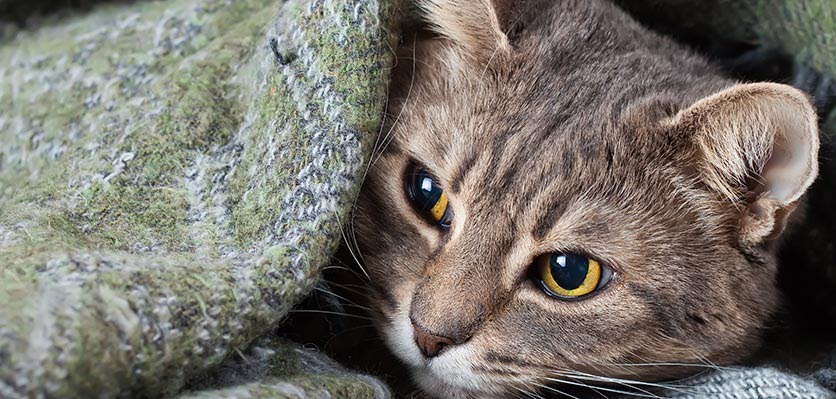
What are “cat zoomies”?
Zoomies are periods of hyperactivity where you may notice your cat moving around the house rapidly, perhaps in laps or up and down the stairs. This may then all come to an abrupt halt and your cat may resume relaxation as she was before getting the zoomies! The clinical term for zoomies is Frenetic Random Activity Periods.
Does hyperactivity mean my cat needs to see a vet?
These inexplicable bursts of energy are a completely normal part of cat behaviour. In particular, younger cats and kittens will show a higher incidence of this behaviour. It is simply an effective way to burn of excess energy.
However, if your older cat suddenly exhibits a new tendency to be up late when she would normally be resting or asleep, is losing weight and exhibiting hyperactive episodes or strange behaviour, ensure you take her to your vet. Feline hyperthyroidism is a condition, which may cause your pet to show some of the above signs.
Why does my cat keep me up at night?
Most likely, your younger cat is exhibiting very normal sings of a young healthy playful cat. Bouts of hyperactive play are an enriching way for a cat to engage her inner predator, practising skills that she really doesn’t need in a domestic setting, but nonetheless are likely fun and exhilarating for her. This may include pouncing, stalking, jumping or meowing and unfortunately, this may keep you up by occurring at night.
Contrary to popular belief, cats are not nocturnal but are crepuscular. This means they are naturally most active at dawn and dusk. This comes from the biological need to take advantage of cooler times of day in order to more effectively hunt.
This explains why your cat may exhibit higher energy late at night and early in the morning. However, your domestic cat doesn’t depend on her hunting skills to survive. She knows that you feed her and there are things you can do to discourage early morning wake up calls and late night disturbance while trying to get to sleep.
Try not feeding her the moment you wake up in the morning. Your cat may quickly learn that if she wakes you up in the morning that breakfast will soon be served. Offset this by feeding her before you leave for work instead. Cats may also exhibit night time antics for attention, be it good or bad attention. Instead of responding harshly out of annoyance, simply remain quiet. She will learn more from your silence. Try playing with her in the daytime or in the early evening so that come bedtime, she is more likely to settle in for a nights sleep having exerted some excess energy.
Just like dogs and children, your cat may have pent up energy, particularly if she is a younger cat. Leave different toys with her while you are at work so she is less inclined to sleep throughout the entire day. Understandably, without toys or anyone at home to entertain herself with, she may become excited and more animated when you come home from work, unwind and go to bed.
